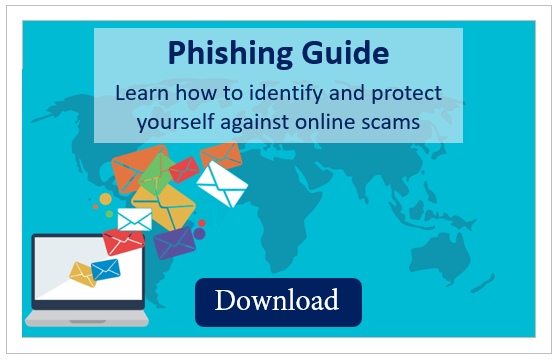When Disaster Strikes a Blow
%20-%20Red%20and%20Black%20Flag%20-%20JPEG%20-%202-27-2020.jpg?width=945&name=Image%20-%20Blog%20Image%20-%20Mike%20-%20When%20Disaster%20Strikes%20a%20Blow%20(updated)%20-%20Red%20and%20Black%20Flag%20-%20JPEG%20-%202-27-2020.jpg)
In recent days Hurricane Harvey has already cut a broad swath of destruction through Houston and up along the Texas coastline. The devastation caused by Hurricane Irma's post Labor Day path through the eastern Caribbean and up the gulf coast of Florida is still being tallied. While the loss of life won't be as horrific as some feared before the storm made landfall, one thing is certain...the bill for all the property damage is going to be a whopper.
By some estimates, in the US alone the total combined clean-up costs of these two powerful storms will exceed $100 billion and could swell to 2 or 3 times that amount by the time the water recedes.
To put that number in perspective, the low end of the cleanup estimate is enough to hand out a $100,000 no-strings-attached scholarship to every single U.S. student currently enrolled in a 4 year college or university. Sadly, many of the hurricane losses will be completely uninsured and the financial and emotional burden will likely fall on the shoulders of some of the most vulnerable.
This means relief efforts will rely on government funded programs like FEMA and private donations from ordinary citizens looking to lend a hand.
On the bright side, Americans have a long history of jumping in the fray to pass the hat, extend a hand out, or lend a hand up in times of national and international need. It's part of who we are as a country. Unfortunately, there are always a few bottom feeders who maliciously pounce on the misfortune of others. To make sure your good intentions are not diverted by scam artists looking to make a quick buck, follow these simple precautions:
Surf before you swim
Obviously you'll want to make certain any relief agency soliciting you for a donation is reputable. Well run agencies all have tell tale signs that include characteristics like experienced & professional management, a defined mission, and the ability to to accept tax deductible donations. Use websites like Guidestar.org, CharityNavigator.org, and CharityWatch.org to get free comprehensive data on nearly all IRS approved non-profits. These sites are constantly updated and easy to use. Pointing your mouse to their URLs ought to be your reflexive go-to move every time you get solicited for donations.
Attach a few strings
If you are like most folks, you probably do want to direct your gift to a specific location or project. Don't feel bad, there is nothing wrong with directing exactly how you want your donation to be applied. To be sure your donation goes to the specific relief project you want and not simply added to a non-profit's general fund, you'll have to ask if there been a designated fund set up for the purpose you intend. When it comes to directed giving, there are three magic words: "Establish donor intent". In the world of non-profits, disregarding donor intent is one of the cardinal sins. While a blood drive in Milwaukee is certainly a critical need from time to time, it's probably not what opened your heart and your wallet. If you are intent on making sure your resources are directed towards something like emergency shelters for displaced families in greater Houston, make certain to establish donor intent before you cut a check.
Cash isn't always king
For larger gifts, you should always talk to your financial adviser or your CPA first. With the stock market at or near record highs, sometimes a better way to give is to consider funding contributions with appreciated stock or mutual fund shares to help leverage the tax efficiency of your donation. The same can be said for making donations directly from IRAs using a Qualified Charitable Distribution (QCD). A word to the wise: donors need to be very careful when making QCD donations. The rules are extremely rigid and the IRS is unforgiving when it comes to mistakes. While nearly all reputable non profits are easily able to accommodate non-cash gifts, this probably isn't a do-it-yourself endeavor.
Stop & drop or just point & click
Lastly, don't overlook donations of material goods. Already local churches and community centers are mobilizing to set up pantries that will deliver everything from bottled water and diapers to pet food and plywood. Don't have a lot of surplus goods stored away at the moment? No problem. The American Red Cross has already set up a wish-list page on Amazon to collect and ship critical relief supplies to the victims of Hurricane Harvey. Offering a helping hand can sometimes be as simple as point and click. Look for other established sites to do the same for domestic and international victims of Irma in the days ahead.
While you may not be in a position to hand out blankets, ladle hot soup to over-worked volunteers, or help rescue pets separated from their owners, you can follow these tips to steer clear of the scam artists intent on lining their own pockets. As a busy hurricane season winds to a close, keep in mind there's already been enough victims from the gales of summer. Don't let yourself become collateral damage.
Michael Reid is a Managing Director and Partner at Exchange Capital Management who writes on personal finance, wealth management, and philanthropy. The opinions expressed in this article are his own.
Comments
Market Knowledge
Read the Blog
Gather insight from some of the industry's top thought leaders on Exchange Capital's team.
Exchange Capital Management, Inc.
110 Miller Ave. First Floor
Ann Arbor, MI 48104
(734) 761-6500
info@exchangecapital.com




